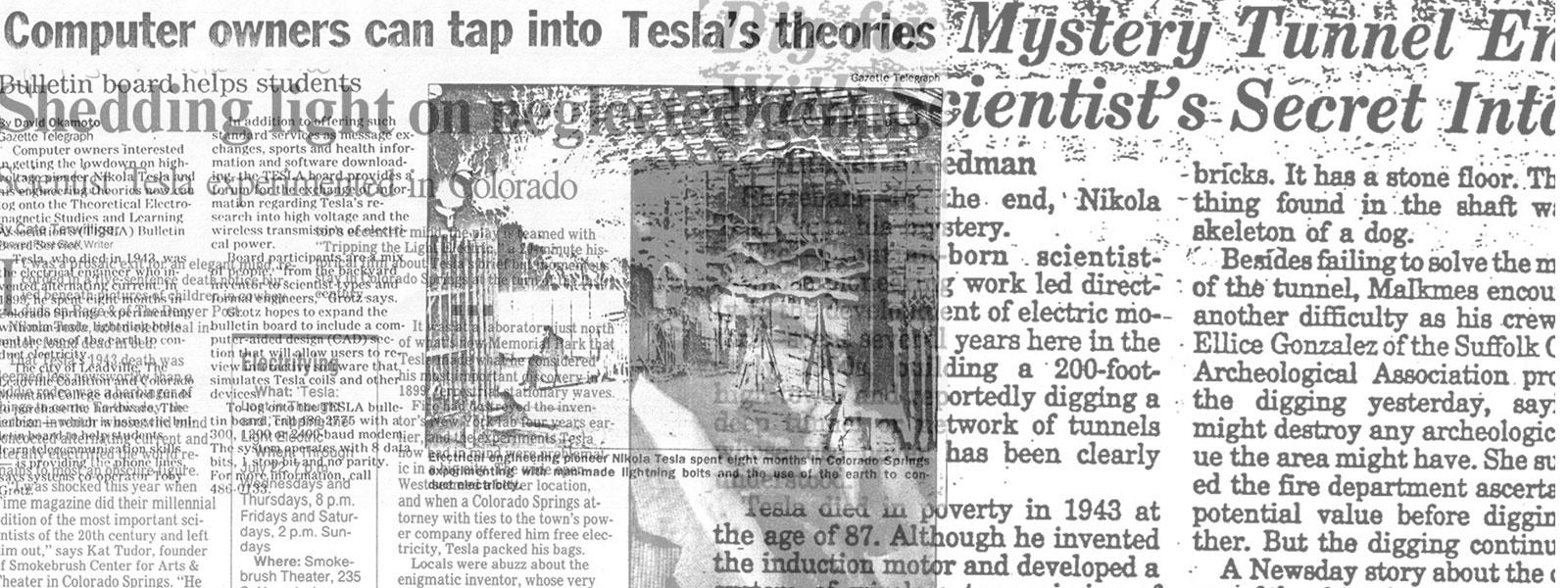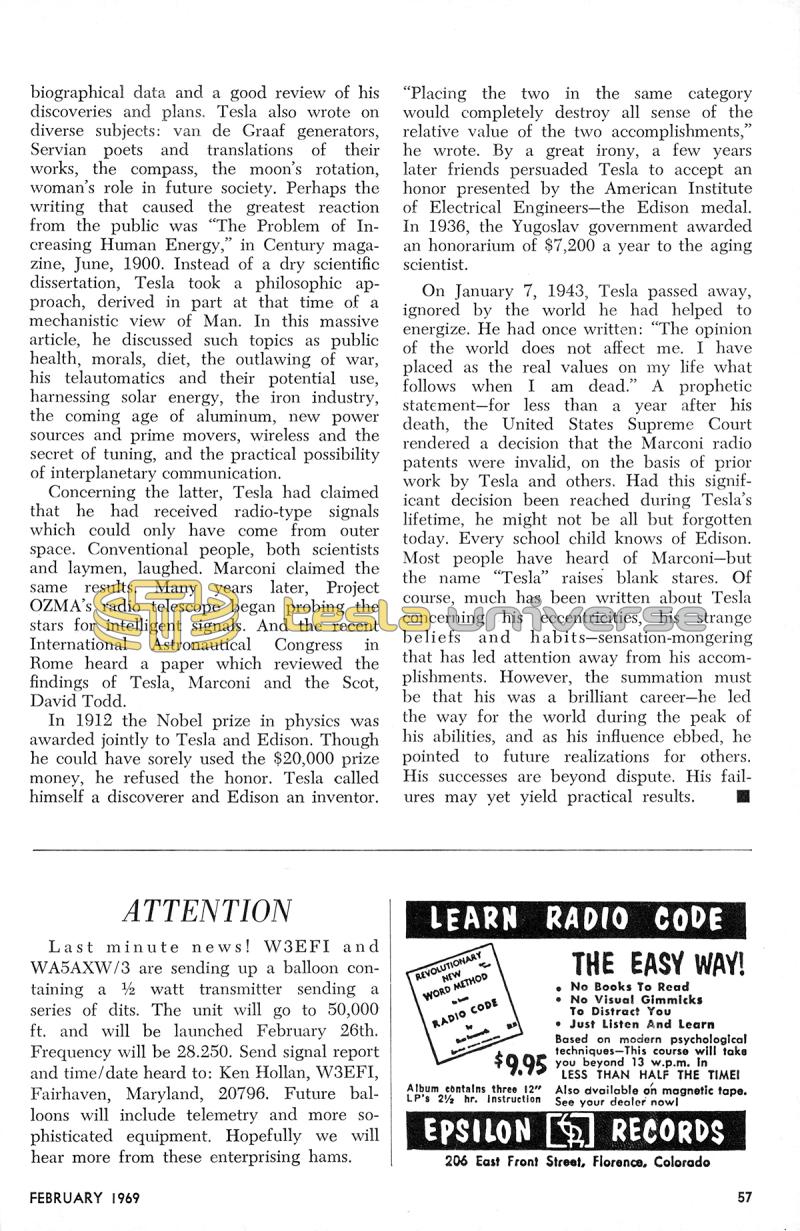
Nikola Tesla Articles
Nikola Tesla - Master of Electrical Energy Page 16
73 Magazine - February 1st, 1969
biographical data and a good review of his discoveries and plans. Tesla also wrote on diverse subjects: van de Graaf generators, Servian poets and translations of their works, the compass, the moon's rotation, woman's role in future society. Perhaps the writing that caused the greatest reaction from the public was "The Problem of Increasing Human Energy," in Century magazine, June, 1900. Instead of a dry scientific dissertation, Tesla took a philosophic approach, derived in part at that time of a mechanistic view of Man. In this massive article, he discussed such topics as public health, morals, diet, the outlawing of war, his telautomatics and their potential use, harnessing solar energy, the iron industry, the coming age of aluminum, new power sources and prime movers, wireless and the secret of tuning, and the practical possibility of interplanetary communication.
Concerning the latter, Tesla had claimed that he had received radio-type signals which could only have come from outer space. Conventional people, both scientists and laymen, laughed. Marconi claimed the same results. Many years later, Project OZMA's radio telescope began probing the stars for intelligent signals. And the recent International Astronautical Congress in Rome heard a paper which reviewed the findings of Tesla, Marconi and the Scot, David Todd.
In 1912 the Nobel prize in physics was awarded jointly to Tesla and Edison. Though he could have sorely used the $20,000 prize money, he refused the honor. Tesla called himself a discoverer and Edison an inventor.
"Placing the two in the same category would completely destroy all sense of the relative value of the two accomplishments," he wrote. By a great irony, a few years later friends persuaded Tesla to accept an honor presented by the American Institute of Electrical Engineers - the Edison medal. In 1936, the Yugoslav government awarded an honorarium of $7,200 a year to the aging scientist.
On January 7, 1943, Tesla passed away, ignored by the world he had helped to energize. He had once written: "The opinion of the world does not affect me. I have placed as the real values on my life what follows when I am dead." A prophetic statement - for less than a year after his death, the United States Supreme Court rendered a decision that the Marconi radio patents were invalid, on the basis of prior work by Tesla and others. Had this significant decision been reached during Tesla's lifetime, he might not be all but forgotten today. Every school child knows of Edison. Most people have heard of Marconi - but the name "Tesla" raises blank stares. Of course, much has been written about Tesla concerning his eccentricities, his strange beliefs and habits - sensation-mongering that has led attention away from his accomplishments. However, the summation must be that his was a brilliant career - he led the way for the world during the peak of his abilities, and as his influence ebbed, he pointed to future realizations for others. His successes are beyond dispute. His failures may yet yield practical results.
